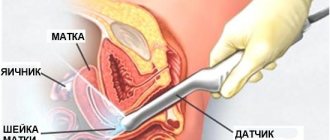During pregnancy, hormonal levels change dramatically. Such a global restructuring affects the functioning of all body systems.
Women are ready for many internal and external changes, because from their own experience or from doctors they know about the inevitable transformations. But some atypical symptoms are cause for concern. Such manifestations include curdled discharge during pregnancy. How safe are they and how to behave if nothing like this was observed before conception? Let's try to figure it out.
Fetus at 27 weeks gestation
At the 27th week of pregnancy, the fetus enters the next phase of active growth. Now his weight reaches 900 g, and his size (full height) is on average 36 cm. He begins to grow quickly, and this is due not least to the active development of the brain. Thus, the pituitary gland produces the hormone somatotropin, which is responsible for the growth of the child.
Other endocrine glands are also activated. The pancreas produces insulin, the thyroid produces calcitonin, thyroxine, triiodomarin, which are responsible for the calcium content in the baby’s body, the development of mental abilities, and metabolic processes.
The baby becomes less and less dependent on the mother’s hormonal status and can even take over some functions, which the mother feels as an improvement in her health at the 27th week of pregnancy.
All the main organs and systems have already been formed by this time, mainly the immune and respiratory systems continue their active development, preparing to ensure the vital activity of the small organism in the “other” world. Alveoli and alveolar ducts continue to form. From the 27th week of pregnancy, surfactant begins to be produced - a special substance that will help the alveoli open after the baby takes his first breath. By the time of birth, the concentration of surfactant must be sufficient for independent breathing, otherwise the child will have to be connected to a machine. But even if for some reason the birth occurs now, then with adequate help from doctors and the use of modern equipment, the baby will be able to live!
It becomes more and more like a newborn: eyes and ears have formed, soft nails are growing, eyelashes, eyebrows and hair on the head are visible, the genitals are clearly visible, so during an ultrasound there are very high chances of seeing the sex of the child.
The skin is still quite wrinkled - this is understandable, because the body is always in the water. But on the other hand, it is no longer so bright red, and the further it goes, the lighter it will become - subcutaneous fat is deposited at a high speed.
Your baby's eyes are already opening and closing and by this time are responding well to light. In general, the little one behaves like a baby: he experiences emotions, feels tastes and smells, hears sounds coming from inside and outside, plays, and he has already developed a more or less stable sleep and wakefulness pattern.
Although the baby has already grown up enough, he still has enough room for active activities: he swims, tumbles, pulls his legs up to his face, trains his limbs, which are growing more and more muscles every day and becoming stronger. Mom already feels very well all the pushing, turning over and changing positions. Sometimes you can even guess which part of the child’s body is resting on the stomach. Sometimes he begins to hiccup: as a rule, fetal hiccups are short-lived and do not bring him any discomfort.
Ultrasound
Almost all of these changes can be seen on an ultrasound at 27 weeks of pregnancy. During its passage, the location, growth and development of the fetus, its organs and systems, motor activity and heartbeat are assessed. So, at week 27, the baby’s heart makes 140-150 beats per minute, and it makes up to 40 breathing movements.
The parameters of the child are very important because they help to establish the correspondence of his development to the gestational age and assess his well-being. The ultrasound specialist will also certainly examine the location of the placenta, the amount and condition of amniotic fluid, the condition and size of the uterus and, if necessary, the cervix.
In principle, there is usually no need to undergo an ultrasound scan at 27 weeks of pregnancy. But in some cases, an ultrasound examination may be prescribed for the mother to exclude any suspicions. Indications for its implementation may be suspicions of a non-developing pregnancy, its unfavorable course, infections suffered by the mother and existing diseases, and so on. Of course, you don't have to worry if your doctor sends you for an ultrasound. It’s just that sometimes reinsurance is not superfluous.
But if by this time you do not yet know the gender of the child, then perhaps it will appear during an ultrasound scan at 27 weeks of pregnancy, because from this period the reliability of gender determination increases significantly.
Features of the body of the expectant mother
Immediately after conception, the corpus luteum of pregnancy begins to grow and become active. Until about 12-14 weeks, the latter releases large quantities of the hormone progesterone, which many gynecologists call the “pregnancy hormone”. Progesterone is responsible for several important aspects necessary for the successful bearing of a child.
The woman’s immune system regards the fetus as a foreign object and tries with all its might to get rid of it. To prevent this from happening, progesterone suppresses immune activity and prolongs pregnancy.
After 14 weeks, the corpus luteum undergoes reverse development, ceases to function and secrete progesterone. Further production of the hormone is taken over by the placenta. As the fetus grows, the level of progesterone gradually decreases, and estrogen increases. Such hormonal fluctuations certainly affect the microflora of a pregnant woman’s vagina.
Thus, suppression of the activity of general and local immunity, changes in the level of hormones, the acidic environment of the genital organs, and a lack of vitamins and minerals lead to increased growth of some microorganisms and the disappearance of others.
An imbalance of microflora makes the vaginal mucosa most susceptible to any infection, which leads to the appearance of any pathological discharge during pregnancy, not just cheesy discharge.
Uterus
The uterus must be examined during an ultrasound. An assessment is made of its location, size, fundus thickness, condition of the myometrium, and so on. At the 27th week of pregnancy, the fundus of the uterus rises 5-7 cm from the navel or 27-28 cm above the womb.
The weight of the uterus increases sharply at 26-27 weeks, and you will feel it: it is increasingly difficult to find a comfortable position. The uterus is already quite large and heavy, so in some positions it can infringe on the vena cava, blocking the return of blood from the extremities to the heart, which can cause dizziness and even loss of consciousness. In this regard, it is not recommended to sit for a long time, cross your legs, or lie on your back. The most physiological position for sleeping during pregnancy is considered to be lying on your left side.
When to see a doctor
The nature of white discharge during pregnancy may also indicate the presence of infection. To suspect a disease, you need to pay attention to the shade and smell of vaginal secretion. There are several characteristic differences in leucorrhoea that indicate a specific pathology affecting the female body:
- white discharge with a fishy odor in pregnant women indicates bacterial vaginosis or a microflora disorder;
- when the vaginal secretion has a cheesy consistency, accompanied by a sour odor, the development of candidiasis should be suspected;
- white mucus of a yellow-white hue indicates the presence of trichomonas vaginitis;
- If white discharge mixed with blood appears, the patient urgently needs to go for examination to exclude pregnancy pathologies.
To accurately diagnose the cause of the appearance of white secretion during pregnancy, which causes discomfort, a woman should visit a gynecologist and undergo all the necessary tests.
When a pathology is detected, appropriate examination and treatment are prescribed that will help cope with the disease without harm to the mother and child.
Stomach
All the main events in your life are now happening in your stomach, so both yours and the doctors’ attention is focused mainly on it. The attention of others also first falls on the tummy, because at the 27th week of pregnancy it has already grown quite enough.
You may experience some discomfort due to your expanding belly. These are insomnia, shortness of breath, heartburn, bloating, constipation - the uterus puts pressure on the internal organs, so they often malfunction slightly. In addition, sometimes the mother feels rhythmic shuddering inside - this is your baby hiccupping. You already feel him very well, you can guess what he is doing now and in which direction he is turned. Sometimes the child’s excessive activity and movements cause discomfort and even pain and are especially annoying at night, preventing sleep. In this case, try to calm the baby as if you had already done it with a newborn baby: stroke your tummy, sing a lullaby, “lull to sleep” (walk around the room).
The skin on the abdomen continues to tighten as it grows, which can cause itching. But if the itching becomes unbearable and spreads to other parts of the body, and also noticeably intensifies at night, then it is necessary to undergo liver tests.
If your stomach becomes stiff or painful at 27 weeks of pregnancy, you should definitely tell your doctor about it.
Pain at 27 weeks of pregnancy
In general, a pregnant woman is a living person and anything can make her sick. But this does not mean at all that it is necessary. Although many pains are truly harmless and are temporary in nature associated with pregnancy, including pain on the sides of the abdomen. Firstly, the ligaments continue to stretch, holding the growing uterus (you especially feel such pain when you suddenly change your body position). Secondly, training contractions begin as preparation for childbirth. But such pains are unexpressed and passing, if they intensify and grow, or are accompanied by bloody discharge from the genital tract, then it is necessary to exclude the onset of premature labor.
Abdominal pain at 27 weeks of pregnancy may also be associated with disruption of the digestive organs. Usually such pain is easily recognizable.
Under the weight of weight, the spine, back, lower back and legs may begin to hurt at 27 weeks of pregnancy. Try not to walk for a long time, wear comfortable shoes, do not stick your stomach forward, and take care of the prevention of thrombosis. A massage or a water bath with cool or slightly warm water will help relieve tired legs. The appearance of cramps in the calf muscles indicates a lack of calcium in the body - its deficiency should be replenished.
You should know that sometimes pain radiating to the lower back and lower abdomen is caused by diseases of the urinary system. If at the same time you notice painful urination, pain and burning in the vagina during urination, increased body temperature or other symptoms associated with pain, then be sure to tell your doctor about it.
At the 27th week of pregnancy, the mother’s body is already beginning to actively prepare for childbirth, and in connection with this, pain may appear in the pelvic area and in the pubis. The bones gradually soften and begin to separate, opening the birth canal. You may develop a “duck walk” - this indicates symphysitis.
In addition, pain in the rectal area may well indicate the development of hemorrhoids. But if you immediately react to the situation, then it can only be corrected by correcting your diet.
When caught by surprise by thrush
A disease such as thrush (scientifically candidiasis or candidiasis) deserves special attention. Its causative agents are yeast-like mycoses of the Candida family. They are present in the natural biocenosis of the vagina, i.e. live in the body in small quantities in everyday life. However, due to a number of reasons, their number increases, they multiply excessively, as a result of which thrush develops during pregnancy.
The main cause of candidiasis is a decrease in protective functions and a weakening of the body's immunity during the period of waiting for the baby. These fungi, which live in the microflora of the vagina, receive “reinforcement” from the outside in the form of bacteria and microbes, gaining momentum and affecting ever larger areas of the mucous membrane.
Discharge from thrush in pregnant women has a cheesy consistency with white lumps, an unpleasant sour-milk odor, and may have whitish streaks, a yellowish or greenish tint.
For thrush Curdled
In addition to discharge in the genital area, there is itching and burning, which make themselves felt especially in the evening. In addition, swelling of the mucous membrane and pain in this area may be observed. Sometimes pain when urinating is also typical, since urine, getting on damaged areas of the mucous membrane, injures and irritates them, which causes painful and uncomfortable sensations.
Sex
In some cases, your doctor may prohibit you from having sex at 27 weeks of pregnancy. Most often this is due to increased uterine tone. Please note that in this case, any actions that can lead a woman to orgasm are contraindicated, since at the peak of pleasure the uterus begins to actively contract.
However, if everything is fine with health and pregnancy, there are no threats to pregnancy, then sex at 27 weeks of pregnancy can bring a lot of pleasure to future parents. And don't let your big belly bother you. Yes, some positions will be uncomfortable and even dangerous; deep penetration and sudden rough movements should be avoided. But in no case do not deny yourself intimate intimacy if you have a desire and there are no contraindications to this. Pleasant emotions will only benefit everyone, and often it is sex during pregnancy that brings spouses together and reunites like never before.
Of course, this should be sex not just with a regular partner, but also with the one with whom you were sexually active before pregnancy. Otherwise, there is a high risk of developing sexually transmitted infections, even if the man is healthy. The fact is that the female vaginal microflora gets used to the male one, a change in which can provoke a “conflict” between microorganisms. First of all, discharge from the genital tract will help you suspect something is wrong.
Preventive actions
Every woman is simply obliged to take care of her health, and even more so an expectant mother! It has long been known that preventing the development of infection is easier than treating it. During pregnancy, you need to constantly listen to all new symptoms, and be especially attentive to changes in the amount and nature of discharge.
There are several ways to reduce the risk of repeated recurrences of thrush:
- Regular visits to antenatal clinics;
- Timely examination (smear for microflora, blood tests, urine tests, ECG);
- Contact your doctor, especially if discharge appears during early pregnancy;
- You cannot refuse the proposed treatment (the doctor will not prescribe drugs that negatively affect the fetus);
- Conscientiously follow all doctor’s recommendations;
- Maintain intimate hygiene, correct daily routine, get more rest and eat right;
- Strengthening the immune system with vitamins, walks in the fresh air, and consumption of fermented milk products.
Discharge
You should be alerted mainly by colored and odorous discharge. White, yellow, green, purulent, earthy, scarlet, brown, red discharge with a pungent odor of beer, fish or some other is a sign of sexually transmitted infections, and the onset of bleeding may indicate placental abruption or the threat of premature birth. Serious sexually transmitted diseases such as herpes, syphilis, trichomoniasis and others rarely develop during pregnancy. But candidiasis (or thrush) worsens very often, and it must be treated before labor begins, since the risk of infection of the child during passage through the birth canal is very high, and this has its consequences.
You should also pay attention to the consistency of the discharge. In case of pathology, they become thick, curdled, bubbly, and flaky.
But discharge at 27 weeks of pregnancy may well be normal and physiological. Don't be scared by translucent liquid discharge of a uniform consistency. However, towards the end of pregnancy they may become a little cloudy and smell sour.
Watery, liquid, clear discharge with or without a sweetish odor may be amniotic fluid. If they leak, you will have to go to the hospital. It’s bad if the water starts gushing out – call an ambulance or go straight to the hospital.
In addition, discharge at the 27th week of pregnancy can also be observed from the breast. This is colostrum, and apart from maintaining hygiene, nothing else needs to be done. Never try to squeeze milk out of your breasts!
When is discharge normal during pregnancy?
In ordinary life, the female body cannot do without secretions. Their most important function is protective: they serve as a kind of barrier to infections and bacteria, representing a transparent, slightly dense mucus, without much odor. Sometimes it may have a slightly yellow or whitish tint. These secretions in women are formed as a result of the work of mucous secretions. With the onset of pregnancy, hormonal changes begin; every day the female hormones progesterone become less and less, and estrogens become more and more, and they help stimulate the functioning of this secretion. Accordingly, the amount of mucous secretions increases.
Thus, transparent discharge in an interesting position is the norm. If the mucus has a brown or clearly white tint, contains lumps or has a heterogeneous consistency, an unpleasant odor or is accompanied by painful sensations, then this indicates a pathology or a certain disease.
Find out in one of our articles what this or that smell of discharge during pregnancy may indicate.
Thick discharge with pieces With white clots Curdled like cottage cheese
Tests at 27 weeks of pregnancy
So that you do not have any reason to worry, do not neglect scheduled visits to the gynecologist and taking the necessary tests. During this period, visits to the clinic should be made once every two weeks.
During each examination of his ward, the doctor will certainly measure the abdominal circumference, the height of the uterine fundus, the woman’s blood pressure, listen to the baby’s heartbeat and the mother’s pulse.
A routine laboratory test, as before, includes determining the woman’s blood sugar level, the level of leukocytes, red blood cells, and the presence of protein. A urine test is also mandatory.
Don't be alarmed by elevated blood cholesterol levels at 27 weeks of pregnancy. It is necessary for the placenta, which produces hormones, in particular progesterone, which is involved in preparing the breast for feeding and milk production.
Starting from the 27th week of pregnancy, there is a risk of developing gestosis, which is accompanied by an increase in blood pressure, the appearance of protein in the urine, and the occurrence of edema. But if you regularly get tested, then there is nothing to worry about.
Also, if you have a negative Rh factor, then you may additionally be prescribed a blood test for Rh conflict.
Causes of curdled discharge during pregnancy
White curdled discharge during pregnancy can occur as a result of several reasons:
- hormonal changes;
- infection with infectious diseases;
- development of vaginal bacteriosis;
- development of candidiasis (thrush);
- consequence of taking hormonal contraceptives and stopping their use.
Often, curd discharge during pregnancy occurs because the body spends all its energy on the normal development and preservation of the fetus, while the protective and barrier function of the mucous membrane of the reproductive system is reduced, allowing the development of some fungal and infectious diseases.
Discharge from thrush in pregnant women can be identified by its cheesy consistency, white, yellow or green tint, sour unpleasant odor, discomfort such as itching, burning, swelling of the mucous membranes.
If white, cheesy, odorless mucus is released, then most likely we are talking about bacterial vaginosis. Its presence can only be determined using a smear.
This disease has no specific symptoms and may not manifest itself for a long time, even going unnoticed. Such discharge during pregnancy can cause complications, intrauterine infection, lead to miscarriage and even complicate the birth process. Therefore, it is very important to immediately consult a doctor when identifying this type of discharge, take a smear test and take the necessary measures.
The same consequences are possible when infected with sexually transmitted infections, which can only be diagnosed by testing and examination by specialists.
Feel
At 27 weeks of pregnancy, you are already starting to feel tired of your position. You may be plagued by multiple inconveniences and unpleasant sensations: various pains, heaviness, shortness of breath, constipation, heartburn, bloating, frequent urination, fatigue, insomnia... Your arms and legs may now begin to go numb.
Remember that this condition is temporary and that much can be avoided by following certain rules and recommendations. Try to establish proper nutrition, do not spend a lot of time on your feet, do not bother yourself or lift heavy objects, control your posture, refuse difficult work, try to sleep on your left side. Be sure to take a walk every day, especially before bed. Avoid smoky rooms and other harmful factors that can affect your well-being and the development of your baby.
Listen to your little one. If you have established contact with him, then you already know how to recognize his different movements. Every movement of a child can tell his mother a lot: either he is playing, or is excited or dissatisfied with something, or is demanding something.
Now the psycho-emotional state of the pregnant woman is extremely important. Try to eliminate from your life everything that can upset or excite you and learn to react calmly to any situation, no matter what. This makes a big difference!
Diagnostics
The period of bearing a baby brings women many pleasant moments associated with the anticipation of the birth of the baby. But not only positive feelings accompany the expectant mother. She has to deal with the restructuring of hormones in the body, which provokes various, sometimes unpleasant manifestations, such as cheesy discharge, which causes moral and physical discomfort to the young mother.
Clinical researches
- Vaginal flora smear. As a rule, it is taken before a vaginal examination. The analysis is taken with a sterile cotton swab, after which the contents are applied to 2 glasses.
- Test for sexually transmitted diseases or STDs. Blood is drawn from a vein. The result will be ready the next day. Such a study will show not only the general condition of the pregnant girl’s body, but will also indicate the development of a particular infection.
- Examination of a pregnant woman using a gynecological speculum. As a rule, sometimes patients cannot accurately describe their discharge, in which case such an examination is simply necessary.
In addition, the woman may be prescribed an ultrasound. This study allows you to assess the condition of the placenta and various pathologies of the fetus.
If the discharge has a normal consistency and is odorless, there is no itching or burning, then it does not pose any threat to either the mother or the fetus - this is the norm. As a rule, they begin immediately after conception and stop before childbirth.
Balanced diet
It is quite difficult to treat bacterial infections, especially during pregnancy. Based on research results, a specialist prescribes medications that can suppress pathogenic flora in the vagina and help restore balance.
It is very important during the treatment period to start eating right: eat as many vegetables and fruits as possible, and spend as much time as possible in the fresh air.
When treating candidiasis at different stages of development, all kinds of pharmaceuticals are used in different forms - creams, suppositories, ointments. In the first trimester of pregnancy, Pimafucin is prescribed, but it is not the most effective remedy, so the disease recurs.
Detecting Candida albicans in the genital tract is quite simple; you just need to visit your gynecologist and do a general smear on the flora. Sowing will be ready the next day. The detection of a large amount of fungal mycelium in the vaginal discharge, as well as the corresponding symptoms, indicate the need for treatment in a pregnant woman.
There are cases of carriage when fungi are constantly detected in smears, but there are no clinical manifestations or complaints. In this case, the decision to prescribe treatment is made by the doctor, based on medical history, the presence of previous gynecological infections, and somatic diseases.
If the infection is confirmed microscopically and based on clinical signs, therapy can be selected. Now the pharmaceutical market is overflowing with drugs for the treatment of vaginal candidiasis. Do not forget that pregnant women are a special group of patients that require careful selection of medications.
Most oral tablets (Fluconazole, Diflucan, Flucostat) are prohibited for pregnant women due to their negative effect on the fetus. Caution is also necessary in treating women in the first trimester, when the likelihood of miscarriages and uterine tone is high.
Mostly, gynecologists use local drugs to eradicate Candida (suppositories). Vaginal products are safe, are not absorbed into the bloodstream and do not penetrate the placenta, are well tolerated, and side effects are rare. Many of them effectively cope with thrush.
- Pimafucin. Available in the form of suppositories, creams and tablets for oral administration. Each suppository contains 100 mg of natamycin (an antibiotic against fungi from the macrolide group). The active substance is well tolerated, has virtually no side effects, and is not absorbed into the blood when taken orally (it acts only in the intestinal lumen). Resistance of yeast-like fungi to natamycin does not develop. Pimafucin is approved for use in lactating and pregnant women. To treat vulvovaginal candidiasis, use suppositories (1 at night), tablets to eliminate the source of infection in the intestines (1 tablet 3-4 times a day), cream for the sexual partner. The course of therapy is designed for 5-10 days. Pimafucin significantly reduces white curdled discharge during pregnancy already on the second day.
- Neo-Penotran. The suppositories contain metronidazole (an antiprotozoal agent) and miconazole. The drug can be prescribed in the second and third trimesters of pregnancy, one suppository before bedtime for 7-14 days. The duration of treatment is determined by the attending doctor. Sometimes minor irritation, discomfort, and burning may occur after the introduction of suppositories. This side effect is temporary and does not require discontinuation of the drug.
- Terzhinan. Composition of vaginal suppositories: nystatin, ternidazole, neomycin, prednisolone. The complex drug is practically not absorbed from the surface of the mucous membrane, so it can be prescribed to pregnant women if it is really necessary. The course of treatment is up to 14-21 days.
- Clotrimazole. Tablets for insertion into the vagina can also be used to treat thrush (except in the first trimester). It is advisable to combine treatment with douching with antiseptic solutions (chlorhexidine, malavit) for better effect.
- Viferon
Important! The use of borax in glycerin for the treatment of vaginal candidiasis is not considered an effective remedy!
For more effective treatment of thrush, vaginal irrigation with solutions of antiseptic drugs (soda, potassium permanganate, chlorhexidine, miramistin and others) is prescribed. A syringe is used for this purpose.
You can buy it at any pharmacy. The product must be boiled for 3-5 minutes before each use. The prepared solution is poured into the bulb, the tip is put on and the vagina is washed 2-3 times.
This method effectively washes off fungal films, cheesy plaque, and dead epithelium from the surface of the mucosa. After douching, one of the suppositories mentioned above is administered. The procedure is repeated 2 times a day for 7-10 days.
Baths differ from douching in that the solution is poured into the vagina and remains there for 10-15 minutes. This method is used by doctors in antenatal clinics or gynecological hospitals. Irrigation is not recommended in the first trimester of pregnancy.
Lifestyle and diet
You need to pay special attention to your diet, because it is so important not only for a complete recovery, but also for the proper development of the baby. Thrush loves glucose very much, so during treatment you need to exclude chocolate, all confectionery products, rolls, and honey.
Candida also multiplies intensively when a woman eats spicy, salty foods. It is best to increase the volume of fruits, vegetables, cereals, herbs, and berries. Do not forget about taking multivitamins for pregnant women (for example, Elevit).
So, what not to do if you have thrush with curdled discharge:
- Do not take a hot bath;
- Do not visit the sauna and public swimming pool;
- Do not use sanitary pads for a long time;
- Avoid synthetic underwear;
- Sexual rest for the duration of treatment (mandatory sanitation of the partner’s genitals);
- Avoid constipation.
After the course of treatment, you need to see your doctor again for follow-up tests. It is necessary to make sure that Candida has disappeared from the genital tract, otherwise re-inflammation may develop.
Nutrition
Nutrition does not undergo any special changes at the 27th week of pregnancy. The recommendations remain the same: everything healthy, natural, preferably in small portions, but often. Try to minimize the consumption of salt, flour, sweet, fatty, smoked, spicy, fried foods. Be sure to get enough calcium into your body and eat protein every day.
It is better to have a carbohydrate-rich breakfast (muesli, porridge), but a protein-rich one is ideal for lunch. It is well absorbed and does not burden the digestive system. In general, you shouldn’t overeat at night, so if you’ve already had dinner, but your appetite has returned, try tricking your body with low-fat yogurt or fruit.
Drinking is also important. You definitely need to drink enough so that you don’t feel thirsty. The best thing is simple clean water. You can also use unsweetened compotes and fruit drinks. Fresh juices are also healthy, but very high in calories. Therefore, be careful with them - you don’t need excess weight now.
If your weight exceeds the permissible norms, then in addition to sweets and flour products, eliminate or reduce the use of spices when preparing dishes.
Weight at 27 weeks of pregnancy
Excess weight during pregnancy is fraught with a number of complications in the present and future, so it should definitely be kept under control. By 27 weeks pregnant, you could have gained 7.6 to 8.1 extra pounds. The increase mainly consists of an increase in the weight of the uterus and child, the amount of amniotic fluid and blood volume, and heavier breasts. Actually, mom should have recovered only a little.
If you have not abused forbidden foods and have not gained more weight than expected, then do not be upset about your size: during childbirth and during breastfeeding, it will quickly decrease. Also remember that the increase is a rather relative number and may normally differ in each individual case. But don't make excuses for yourself when your weight is really much over the acceptable limits.










